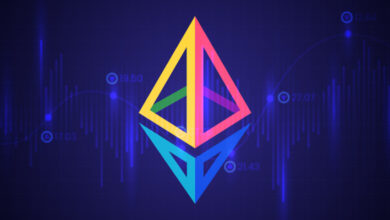Five Signs Blockchain Could Help Your Business

Thinking of integrating blockchain into your business? I don’t blame you.
Blockchain is primed to reshape many industries, promising huge rewards in efficiency, time and cost. This year, blockchain startups have received over $1.3 billion in funding from venture capitalists, with few signs of slowing.
But while blockchain is proving revolutionary for certain industries, it’s not right for every business. There’s no point in using a sledgehammer to pound a nail.
Every week, a new startup or technology promises to revolutionize the world or the way we do business. For business leaders, it’s tempting to swing from one innovation to the next for fear of losing market edge. But as the saying goes, “If it ain’t broke, don’t fix it.”
First, you need to assess whether you need a blockchain solution or if another (perhaps cheaper) technology would do just as well. Perhaps it’s your operational model that needs a rethink, not your infrastructure. Maybe you just need to modernize. There are also different types of blockchains. Some are slower, some are more secure and so on. If a blockchain is necessary, you need to evaluate which type fits your business profile and if the investment of time, effort and money will pay off in the long run.
I can’t give you everything you need to make the decision here, but I can give you a head start. So here are five signs blockchain could help your business.
1. You Need To Share A Database With Lots Of Different People
Blockchains are, to varying degrees, decentralized, operating like a shared ledger. That means everyone on a blockchain network has access to the same information. If they change that information, and the change meets the rules of that specific blockchain, it’s reflected upon everyone else’s version of the ledger.
2. You Process Transactions That Need A Verifiable Audit Trail
Blockchain transactions are immutable and secured by cryptography. Transactions are stored in blocks, and each block is connected to the previous one by a special cryptographic key, created by hashing the previous block’s data. This leaves a verifiable audit trail all the way back to the very first block in the chain.
Fake goods, altered dockets, and leaky supply chains cost money and put consumers’ health at risk. In the fine wine industry, blockchain solutions like the Chai Wine Vault are helping fight fraud and fake wine. Bottles can sell for thousands of dollars, so the risk of counterfeiting is high. And often, those who produce this fake wine use inferior and potentially dangerous ingredients. In this case, blockchain’s immutable transaction record proves authenticity (and safety).
3. You Use Intermediaries To Process Or Verify Information On Your Behalf
Blockchains are trustless by nature, meaning they don’t require you to trust another person before doing business with them. The rules of that blockchain and its consensus mechanism (how it decides whether a block is valid) ensure everyone plays nice.
As blockchains don’t need central authorities or intermediaries, they can increase efficiency, saving time and money. Blockchains are therefore excellent for financial services, removing the need for expensive or complex verification processes, especially across borders and jurisdictions.
Retail bank Santander has started using blockchain for international money transfers. Instead of waiting three to five days for money to go from one person to the next — usually due to complex verification chains between different countries — transfers take place the same day or sooner.
4. You Use Contracts To Fulfill Transactions Between Different Parties
Smart contracts are pieces of code laid on top of a blockchain to perform a function once certain conditions are met. Say, for example, you were exchanging contracts on the sale of a house. Once both parties submit signed electronic contracts, a smart contract could release deeds or funds without involving your realtor.
Smart contracts aren’t “smart” in the traditional sense of the word. They’re written by developers, not AIs with superhuman legal knowledge, so they’re best for simple arrangements, where it’s easy to write logic into watertight code.
Slock.it uses smart contracts to simplify the sharing economy. Instead of manually renting unused physical assets — such as a bike, car or home — a smart contract does everything for you. The same principle applies to business.
Let’s say you rent out bicycles. Instead of having a store, you could secure your bikes with smart locks that only open once paid for through a mobile app. Once returned, the renter gets their deposit back minus the cost of the rental. Everything from the bike’s price to its location is handled by the smart contract, saving you hours of time and costly overheads.
5. Your Transactions Need To Be Transparent
Public blockchains like Bitcoin or Ethereum are 100% transparent. A public blockchain allows everyone to see the transactions recorded on that chain and perform an audit to prove the legitimacy of those transactions. Organizations that rely on transparency — such as charities, financial institutions or governments — could use blockchain to simplify their reporting.
The Canadian government is trialing a project on the Ethereum blockchainto reveal research grants and funding data to the public. Since everyone has access to the data, and it would be near impossible to falsify information without getting caught, it’s the symbolic equivalent of inviting the public to audit their financial decisions in near real time.
Still Unsure?
If you’re still unsure whether blockchain is right for your business, you can evaluate your need further using these flowcharts. If you’re still stuck, or simply want to test a blockchain out for yourself, you can develop on a public blockchain (which is open to everyone), or use one of the many testing applications such as Azure Blockchain Workbench.





